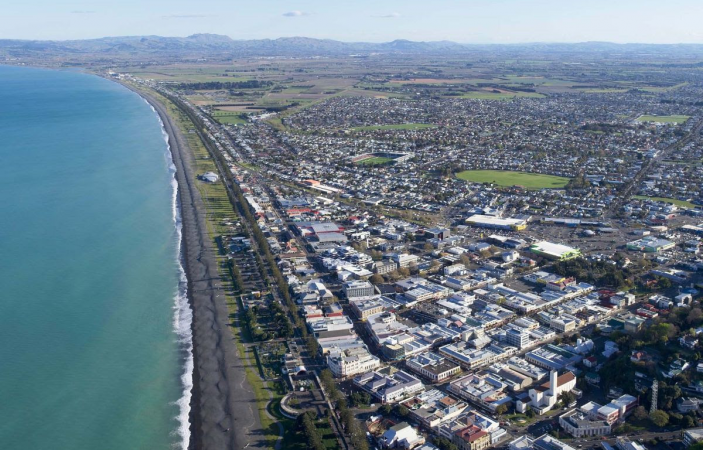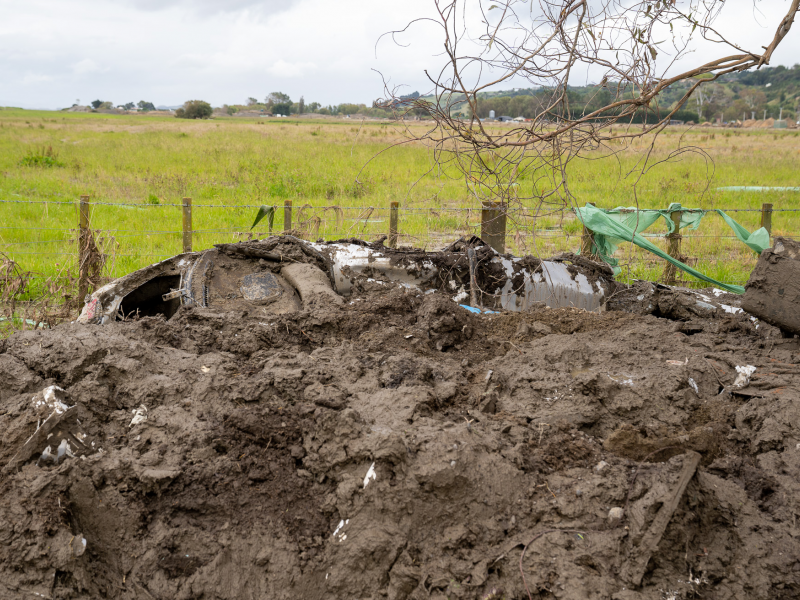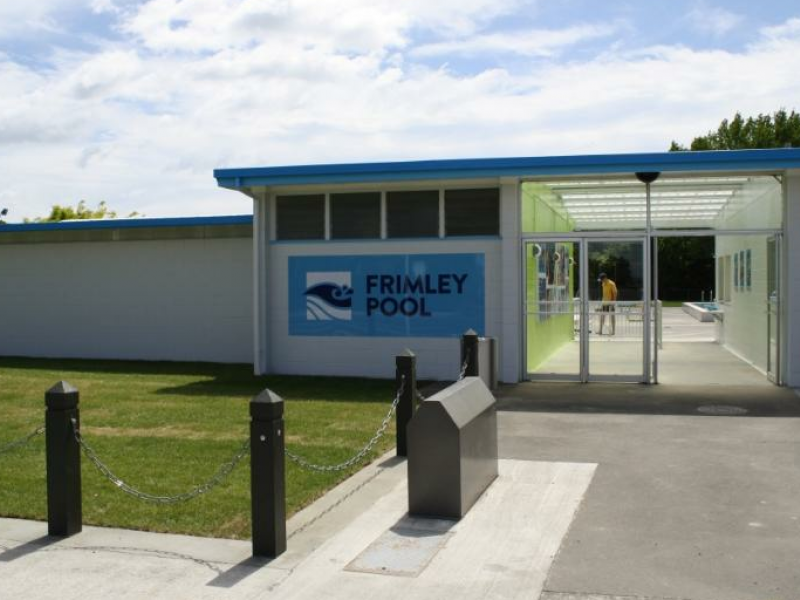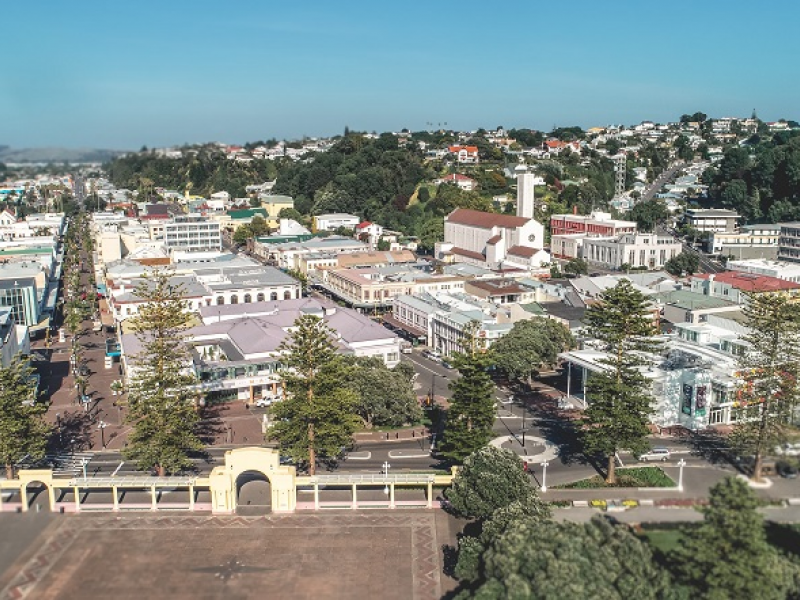Covid-19 recovery a "slow burn" for Hawke's Bay, industry expert says
As the end of Covid-19 restrictions loom, businesses in Hawke’s Bay – of which many are just hanging on – are looking ahead to a brighter and more profitable future.
However, the journey to get there, like we’ve seen with the pandemic, will be slow and tedious, industry experts say.
Since the pandemic began two years ago, employers have had to grapple with changes in restrictions, uncertainty, supply chain disruptions, and staff shortages, that have only intensified with Omicron.
Hawke's Bay Chamber of Commerce CEO Karla Lee says they look forward to moving to the orange traffic light setting, and the international boarder opening, as both will have a positive impact on the business community.
“A move to orange will be advantageous for most businesses in Hawke's Bay, who will be able to lift capacity restrictions and provide greater certainty to customers.”
However, she says this will be a “slow burn” rather than an immediate fix on May 1.
“Many businesses across the region are facing a shortage of staff. This has been a recurring theme for the past few years; however, the issue has intensified with Covid infections and isolation stretching resources even further.
“When the international border opens, there is hope that incoming citizens and working holiday visa holders may be able to fill some of these positions.”
Lee says the economic landscape has been seriously disrupted.
Hawke's Bay Tourism Chief Executive Hamish Saxton says before New Zealand closed its borders, the region was experiencing its highest ever levels of international visitor spending.
During 2019, international visitor spend was worth $166.4 million to the region’s economy, with roughly a third of that ($51.7 million) coming from Australia.
“Hawke’s Bay has done a fantastic job in appealing to domestic travellers, who have supported the region’s visitor economy to some of their best months,” Saxton says.
“However domestic visitors do not spend in the exact same way as international visitors, and we are looking forward to welcoming manuhiri (visitors) from abroad once again.”
Saxton says the rebuild ahead is undeniably a big one, with national forecasters saying the return of international manuhiri is likely to be a trickle rather than a flood.
“In Hawke’s Bay, this will most likely begin with visiting friends and relatives travelling to reunite with their loved ones. I also hope we will see the return of Working Holiday Visa holders who can bolster the ranks of our hospitality and harvest workforces.”
From there, Hawke’s Bay could see Australian visitors in time for Easter and the school holidays, and a return of global travellers from visa waiver countries (UK, USA, Japan and Germany) from May 2.
“The best-case scenario is a steady increase in international visitors throughout the rest of 2022 and a busy and vibrant summer. This is the goal that the team at Hawke’s Bay Tourism will be working towards.”
Kevin Murphy, Napier City Council Events Manager says the industry is “just hanging on”.
“Two years ago, the industry was flying, and it has all come to a halt – funding and government subsidies have helped keep some events afloat – but there have been some events that have missed out completely.”
He says summer essentially "shut down" with a downscaled Art Deco Festival and the cancellation of Horse of the Year, along with a few other events that normally would have taken place.
"It's only really now that we've got a handful of events on the tail of this shoulder season with the likes of outdoor events such as the Cape Challenge, The Kiwi Walk & Run Series and then Easter with the sailing champs, speedway, and a senior tennis tournament and then the Hawke's Bay Marathon that will see us out before we jump into winter."
It is a different story for indoor settings such as theatres and indoor events that cant host "anything meaningful" until the country moves into orange without a 200 person limit.
Murphy says they have associations and relationships with various promoters and are always talking about potential events to bring to Hawke's Bay.
"We are continually in this space of trying to identify and talk to event promoters about what the region can attract. But at least now we know that we can actually host them which is the difference compared to the last two years."
New events are also being added with a 48hr Geoquest Adventure Race (Jan 2023) Toa Iron Maori event (December 3, 2022) First we Eat (Feb 5 2023) and more are being discussed. They also want to see an NRL Warriors game held in Hawke's Bay next year.
"Hawkes Bay is seen as a great option for events. Look at the Hawke's Bay Marathon, concerts, sports tournaments and business events."
New Zealand Apple & Pears Capability Development Manager Erin Simpson says it “certainly has been one of the more challenging seasons” they’ve ever had, with a shortage of pickers, the impact of Covid, shipping delays and weather.
“Growers across all of horticulture tend to be quite a resilient bunch, and they're quite used to hardship and difficulties. But I think it's fair to say that this season it hasn’t just been one thing, it's been multiple different things.”
Simpson believes it is going to take a “while” to get over.
“I think the next couple of years are going to be really interesting as people get used to where we're at now, and I think we'll see an acceleration of innovation towards technology and robotics that can reduce the labour need.”
Hawke’s Bay Winegrowers Association Deputy Chair Peter Hurlstone says labour shortages have been a challenge with the country shut off to international visitors.
“Primarily, wineries have relied on the experience of international people who come to the region, so that's made it quite difficult.
“And then of course, as we've gone through harvest over the last few weeks, the other complexity has been with Covid-19 itself and having people away either because they have the virus or because they're a household contact,” Hurlstone says.
It has also been one of the more difficult seasons due to weather.
“We were fortunate that we had a very warm summer and a very warm lead into vintage. So that meant that we got the majority of the crop harvested ahead of the worst of the weather, but it is fair to say that some of the very late blocks were impacted to a degree.”
However, he believes the industry has for the most part done a “very good job” over the past 12 months in coping with Covid-19 and labour shortages.
“Our members have been very responsible in terms of how they've behaved, and with pretty good support and guidance from New Zealand Winegrowers.”
Now, there is optimism around the borders reopening and hopefully returning to some sense of normality.
“We all know that there are other variants at play, and we just don’t know exactly how that’s all going to play out but hopefully with an easing of restrictions in respect to borders and the number of RSE workers in the country, then things can return to a more normal position.”
























